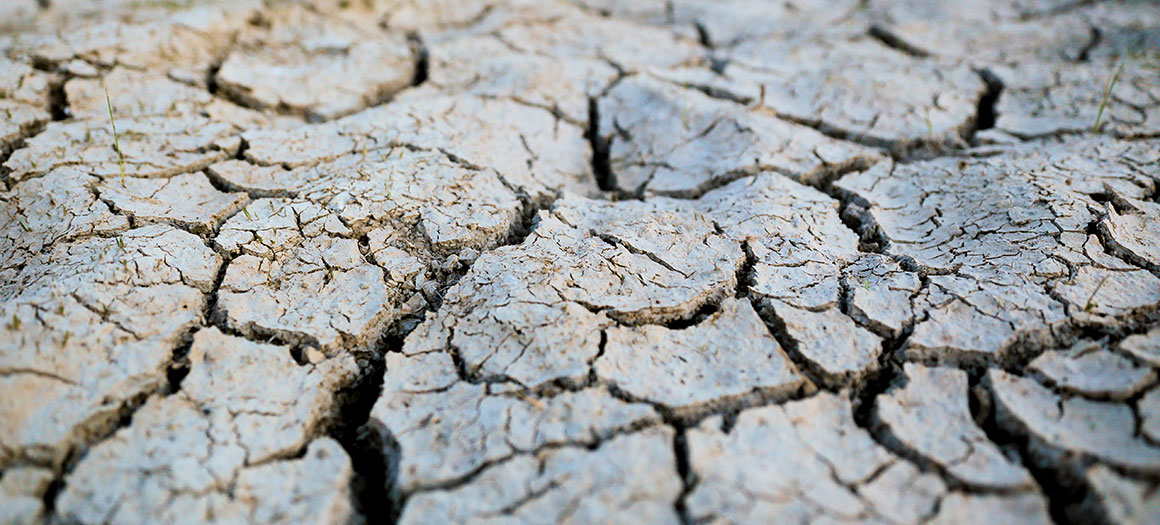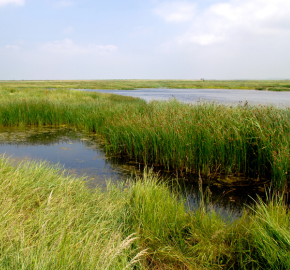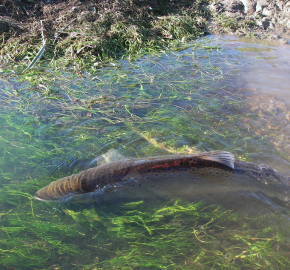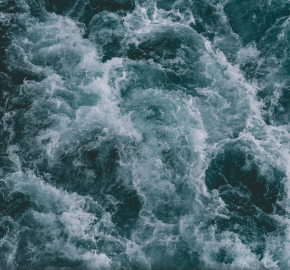Chalk streams: to England what coral reefs are to the Pacific ocean

Did you know we have a freshwater habitat in England rarer than coral reefs?
A habitat almost exclusive to this country, chalk streams are iconic. Their gin-clean, groundwater – fed waters flow through the chalk catchments of southern and eastern England. Chalk streams are vital habitats for wildlife including Atlantic salmon, brown trout, and grayling and support a diverse and distinct invertebrate community.
You might think that their ecological significance and rarity would afford them protection that allows these ecosystems to thrive. Sadly, your assumption could not be further from the truth. In fact, most chalk streams are highly degraded and suffering from the impacts of over abstraction and water quality pressures from poorly regulated agricultural practice and the failing infrastructure of the water industry.
ACTION FOR CHANGE
Several conservation-led organisations campaign to protect these critically at-risk habitats. More recently a collaboration of these groups has led to the formation of the Catchment Based Approach (CaBA) Chalk Stream Restoration Group (CSRG).
This body of regulatory and non-government organisations have set out a series of recommendations to help restore England’s chalk streams that present a tangible opportunity to action change.
The report has many vital recommendations. There are two that will be of most importance in the effort to protect these habitats so that they can support healthy populations of wild fish:
- Enhanced protection: the ecological importance of ALL chalk streams is reason enough to afford them enhanced protection as championed in the report – political will is the missing element that will make these improvement targets a reality.
- Reducing abstraction: this is the critical first measure in the restoration and future conservation of chalk streams, but we need to be ambitious and go further with long-term planning to achieve zero abstraction of all chalk streams and their aquifers (or as close as technically possible). Thus, removing future dependence on ‘cheap’ aquifer water, which in turn reduce the pressures on water quality and riverine habitats that abstraction brings.
THE CHALLENGE OF DELIVERY
The challenge is in the delivery. Chalk streams need action and a strategy that will deliver improvement on the ground and not just words that sit on a shelf gathering dust.
We need a clear roadmap, with ambitious timeframes and leadership. Many of the actions will require significant resources and investment, the implementation plan will need to highlight the possible mechanisms for achieving these actions. Accountability will be key, as will the question of progress and how it will be measured. Fundamentally, we must set out the role of Water Industry National Environment Programme (WINEP) and the Environmental Land Management (ELM) Scheme as key routes to implementation.
In the UK, 13% of aquatic wildlife is at risk of extinction and many other species are in sharp decline.
The reality is that we are facing a biodiversity crisis on a global scale, the likes of which we have not seen before, and freshwater species are declining at a faster rate than any other.
With the majority of the world’s chalk streams in England, we have a duty of care to restore and protect them.
What remains to be seen is how the political landscape will react to an implementation plan that proactively seeks to restore a natural resource that sits on the front line of the battle between the environment and the economy.
What we do know is that the next six months will be critical in establishing if the potential – to reverse the damage done – can become a reality.



